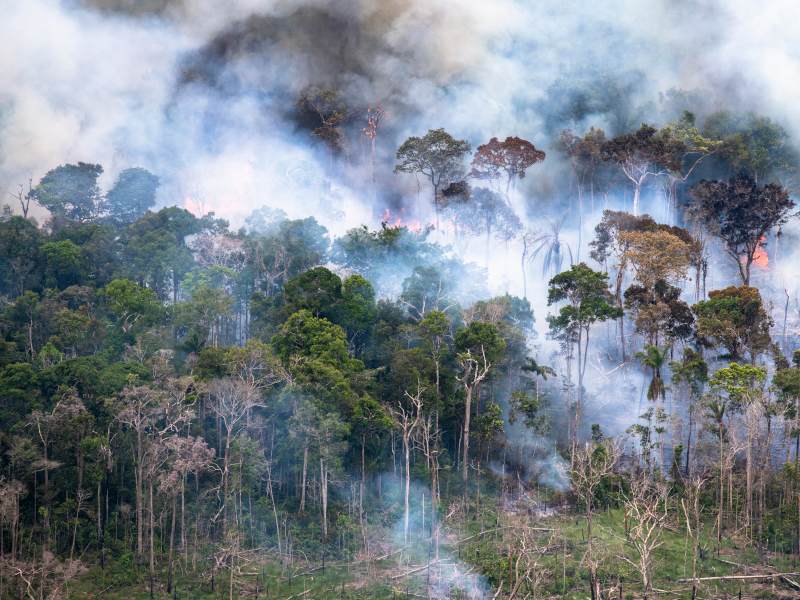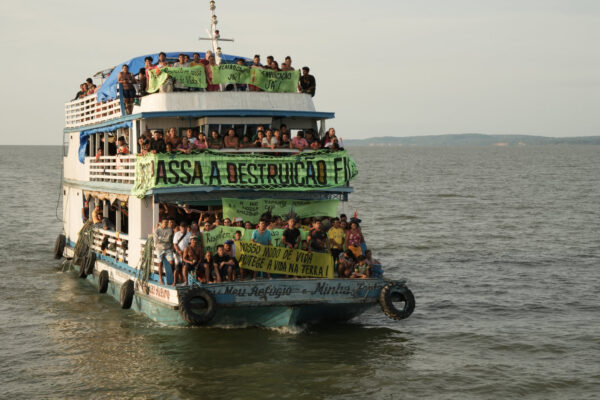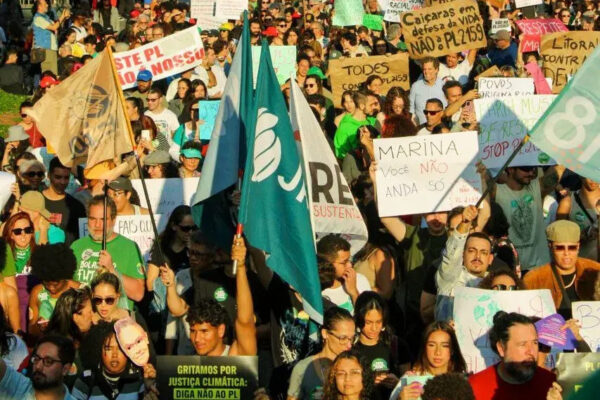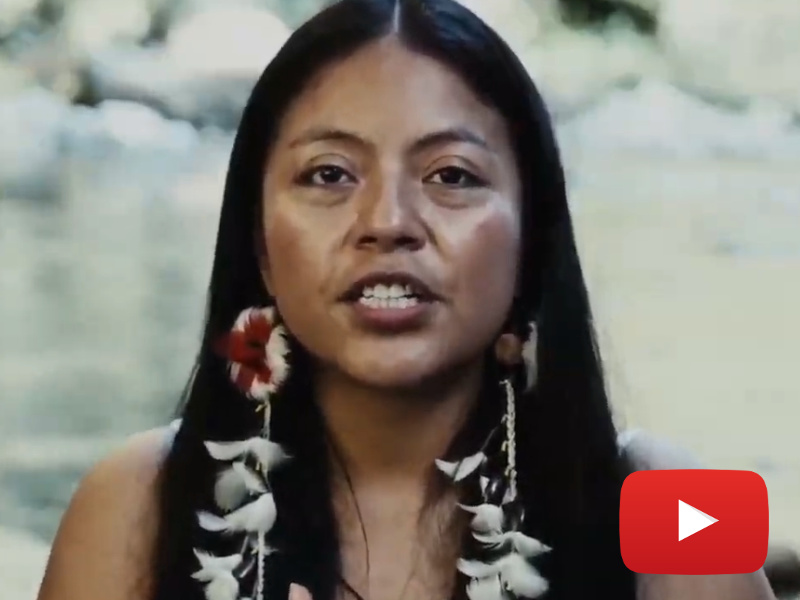A year ago, the world awoke to one of the worst environmental disasters in a generation, as São Paulo’s afternoon sky was plunged into darkness by a dense plume of smoke from fires that raged across the Brazilian Amazon. The devastation of the rainforest was met with unprecedented global concern and media visibility, placing immense pressure on the Brazilian government and raising questions for the global interests implicated in the catastrophe.
This year, as our societies grapple with the all-encompassing COVID-19 pandemic, the Brazilian Amazon has begun to burn yet again, with June’s fires at a 13-year high, fueled by explosive criminality and a political maelstrom emanating from Brasilia. This season’s fires promise to be considerably worse, while potentially passing largely unnoticed in the context of our planet’s many other crises. Meanwhile, smoke and air pollution from widespread fires could profoundly aggravate Brazil’s severe COVID emergency. Because more blazes also mean more problems for the public health system, an explosion of respiratory cases and complications across the continent is even possible, disproportionately impacting Amazonian Indigenous communities.
This scenario must not come to pass. Every hectare of Amazon forest that burns brings the biome ever closer to a catastrophic tipping point, in which it will cease to function as the world’s largest store of biodiversity, home to hundreds of ancestral cultures who keep the forest standing, and a vital buffer against runaway climate change. We all have a role to play in ceasing the destructive cycle pushing the Amazon, and our collective survival, to the edge.
The flames threatening the Amazon are as political as they are physical. Under the Bolsonaro regime’s intentional mismanagement, the Brazilian Amazon and its peoples face a brutal litany of pressures. According to INPE, between January 1st and May 31st, deforestation alerts were recorded in 203,200 hectares of the Brazilian Amazon, 34 percent higher than that recorded in the same period in 2019. Environmental governance however, has plummeted, with 54 percent less enforcement actions since last year.
This paradox is by design. From day one in the presidency, Bolsonaro signaled that environmental crime, land invasions, rural violence, and land grabbing would not only be tolerated but encouraged. In policy terms, this agenda has taken the form of two proposed laws: one that would permit industrial activity in Indigenous territories and another that would legalize land grabbing.
The precursor to 2019’s drastic Amazon fire season was spiking levels of illegal deforestation, which in turn creates the ideal scenario for criminal arson to explode in degraded forests. The plunder of ancient trees by criminal logging networks leads to the razing of remaining forests, the remnants of which are then cleared by fire, allowing land grabbers to parcel out public lands to agricultural interests, particularly in Brazil’s powerful ranching and soy sectors.
A recent study shows that the “potential buying zones” of major the Brazilian meatpacking firms JBS and Marfrig were centered within a region where 47 percent of last year’s 885,000 Amazon fires raged. Meanwhile, the soy silo facilities of major US-based commodity traders Cargill and Bunge also overlapped with the epicenters of the 2019 fires, clearly indicating how the supply chains of global corporations are enabling and profiting from one of the worst socio-environmental disasters of our time.
Cargill has begun to suffer consequences for its well-known role in driving forest destruction. Last week a major Norwegian salmon producer announced it would cease sourcing Cargill’s soy over its links to illegal deforestation in the Brazilian Amazon and Cerrado biomes, in the first such move among Norway’s private sector. This positive step could signal new opportunities for market pressure to reign in the worst behavior of commodity traders and their suppliers.
The Bolsonaro regime must now contend with not only its status as a global pariah but a potentially severe retreat of foreign investment resulting from its reckless dismantling of environmental and human rights policies. In a letter addressed to Brazilian embassies in seven countries, a group of 29 leading global investors managing nearly $4 trillion in assets decried how the regime’s behavior is “creating widespread uncertainty about the conditions for investing in or providing financial services to Brazil.”
This move by key powers within the global financial industry could not come at a better moment. As Brazil’s economy reels from COVID-related contraction, one of its only areas of growth has been its agribusiness sector, the success of which comes at the expense of the Amazon and its peoples. In simple terms, global finance is the oxygen on which the Amazon fires burn. And the threat of major economic consequences resulting from its reckless development policies is the only language Bolsonaro’s criminal regime understands.
For this reason, Amazon Watch is working closely with the Association of Brazil’s Indigenous Peoples (APIB) and a range of local and international partners to publish and leverage new findings on global commercial and financial interests facilitating the worst human rights and environmental abuses of Brazilian agribusiness, mining, and infrastructure interests. As Brazilian and international civil society demands for an immediate, rigorous, and proactive governmental response to the looming fires crisis, we must also expose the complicity of global markets in providing the means for this catastrophe to take place.
To mobilize public opinion at this critical moment, we need to convey the utmost urgency of taking action, applying precise and compelling storytelling that helps build a committed global movement to stand with the Amazon and its peoples and hold those financial interests accountable. Now is the moment to call for an Amazon ceasefire, while the world’s largest rainforest is still able to sustain itself, and by extension sustain us.














